Just a year after the Mazda MX-5 Miata first went on sale in the United States, Ford’s Mercury Division began selling a similarly-priced two-seat convertible here. This was the 1991-1994 Mercury Capri, and I’ve found an example of the hot-rod turbocharged version in a northeastern Colorado car graveyard.
The Capri name has an illustrious history within the Ford Empire. First used on a Lincoln in 1952, it went on to serve as the name for a hardtop version of the early-1960s Ford Consul in the UK, then as the designation for a low-end trim level on the 1966-1967 Mercury Comet. Starting in the 1969 model year in Europe (1970 in North America), Ford began selling the best-known Capri of all: a sporty coupe based on the Cortina, sold through Mercury dealers in the United States but never badged as a Mercury here. Sales of that Capri halted here after 1978 (they continued through 1986 in Europe), but the Mercury Division then moved the name over to its version of the 1979-1986 Ford Mustang. After that, Ford Australia took the Capri name for a new Mazda 323-based sports car beginning in 1989.
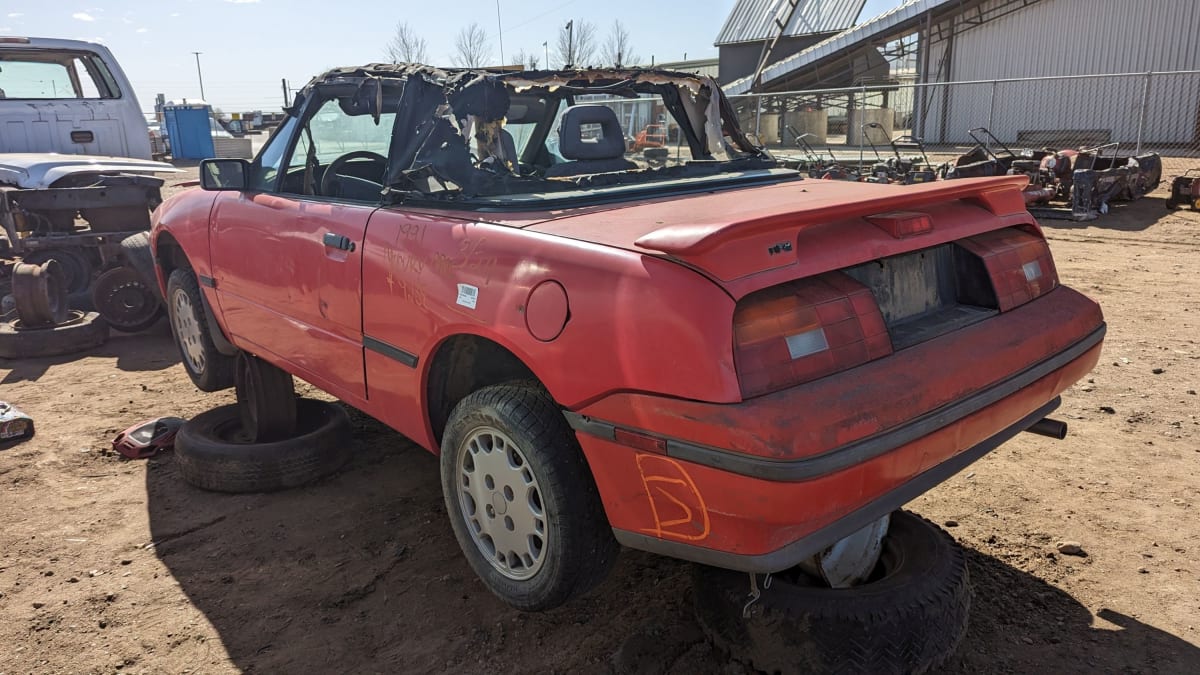
Then Dearborn decided that an Americanized version of the Australian Capri would be a success on this side of the Pacific, and left-hand-drive Capris began showing up in American Mercury showrooms in late 1990. Today’s Junkyard Gem is one of those first-model-year cars, and it’s the very rare turbocharged XR2 version.
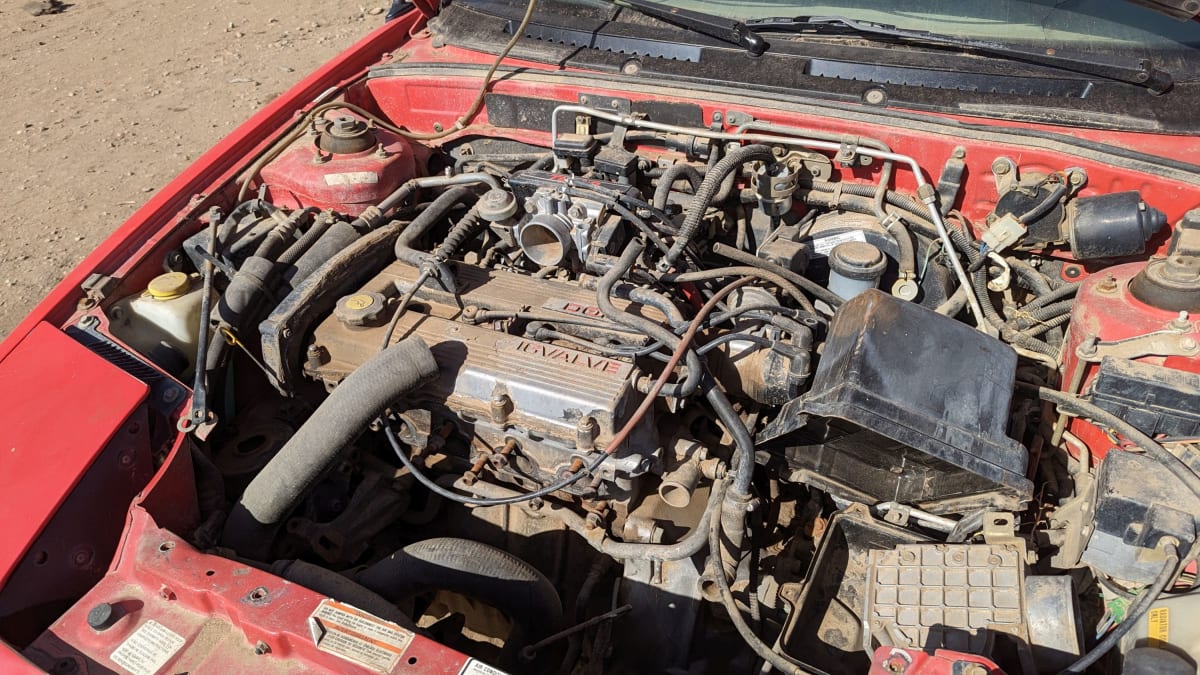
While this car was intended to be a competitor for the Miata, it’s really that car’s Mazda cousin. Both cars got their power from 1.6-liter versions of Mazda’s versatile B engine, though the Capri had the same front-wheel-drive setup as its 323/Protegé (and Escort/Tracer) platform siblings. At the same time, Ford was selling Kia-built Mazdas with Festiva (and, a bit later, Aspire) badging, alongside Mazda MX-6s with Probe badges. Just to make things interesting, American Mazda dealers were selling Ford Explorers as Mazda Navajos, while Rangers with Mazda badges followed starting in 1994. The 1990s were Mazda-riffic times at Ford!
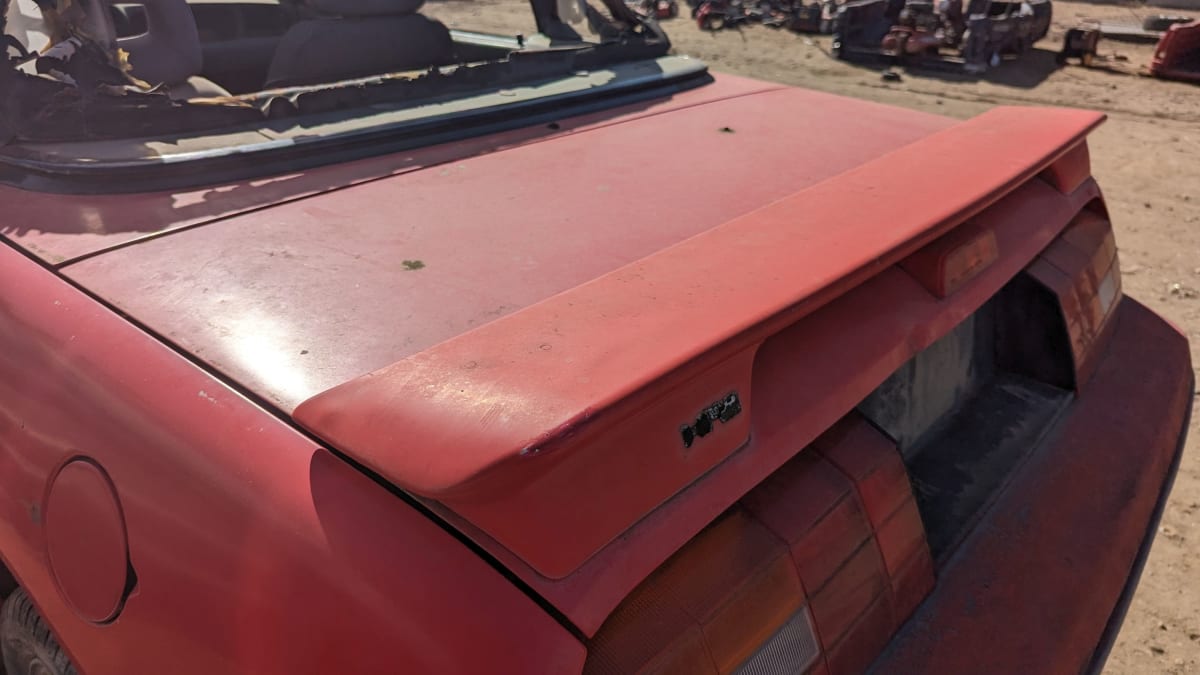
This car wasn’t the first Australian-designed, Mazda-based Ford product sold in the United States. That honor belongs to the 1988-1989 Mercury Tracer, which was based on the same Mazda 323 platform as the Capri and built in Mexico. Later on, the Tracer remained a member of the 323 chassis family but was a nearly identical twin to its Ford Escort sibling.
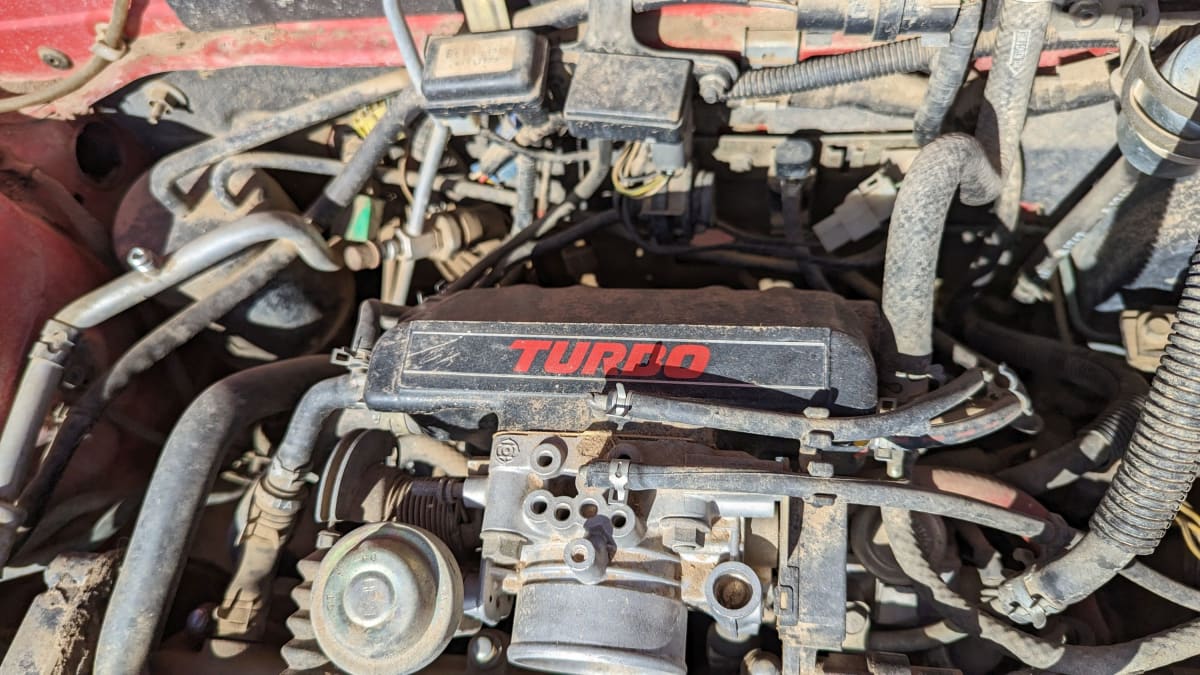
The Capri XR2 got something its MX-5 competitors never got on their 1.6-liter engines: turbocharging. This engine was rated at 132 horsepower, which gave the turbocharged Capri about the same power-to-weight ratio as its lighter Miata rival. I’ve seen a few of these cars on race tracks, and they’re impressively quick on a road course.
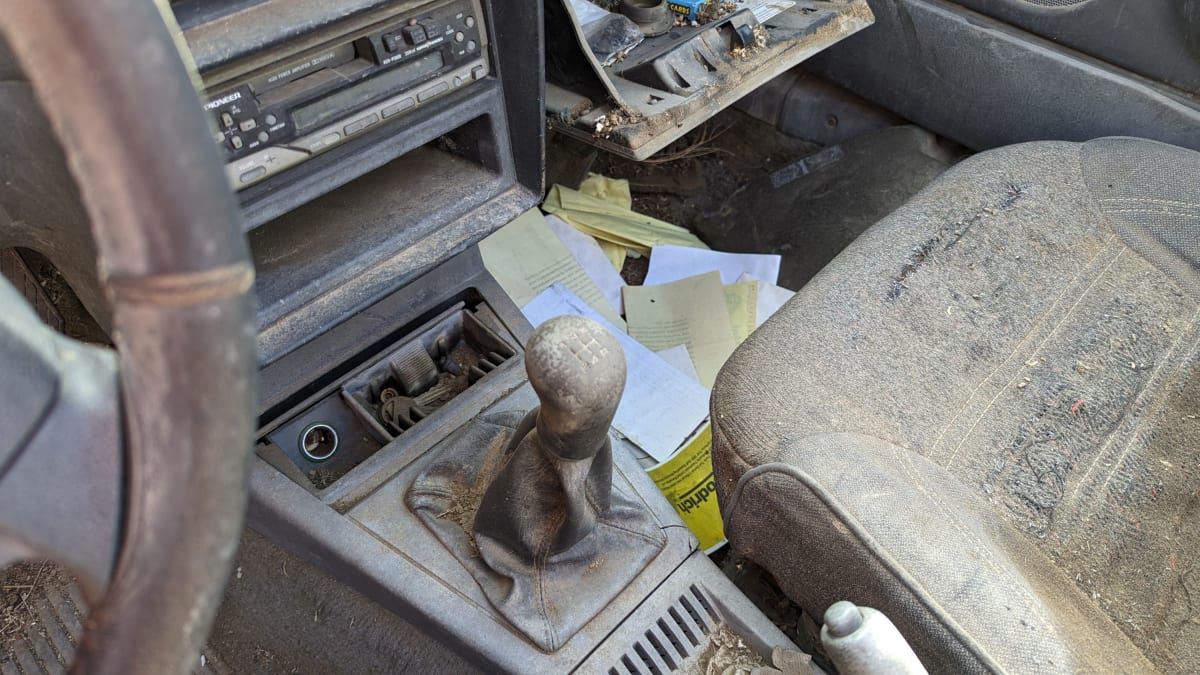
An automatic transmission was available in the 1991-1994 Capri, but I’ve only seen one so equipped during my junkyard travels. This car has the base five-on-the-floor manual.
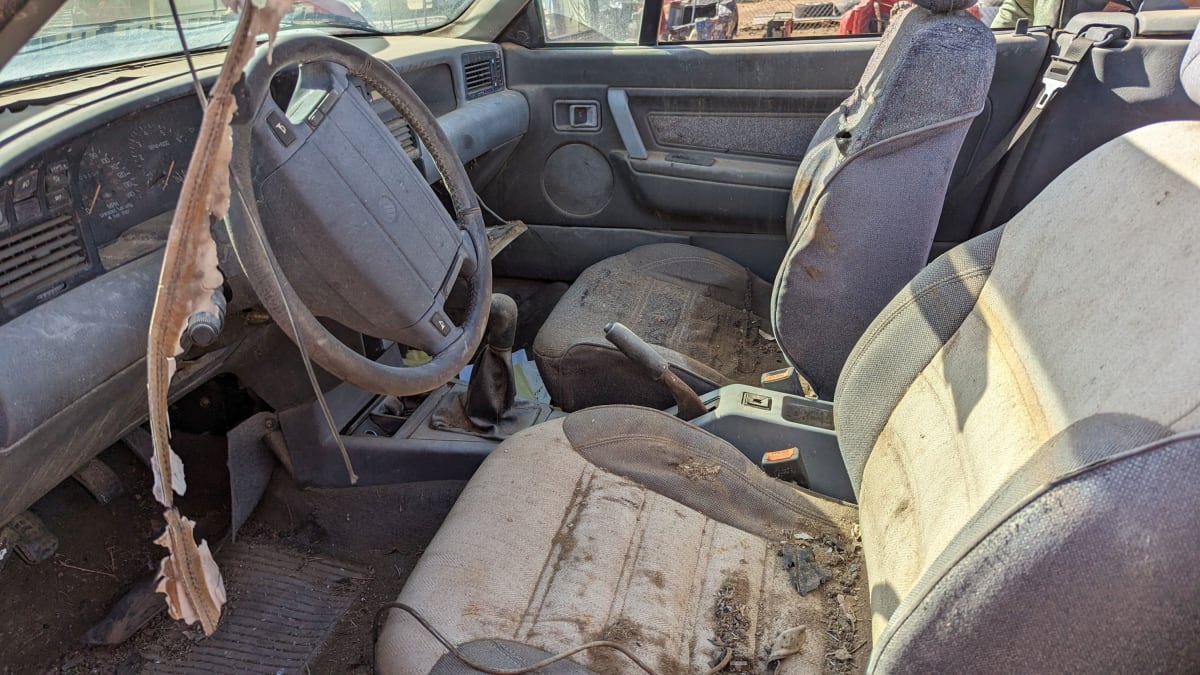
MSRP for the naturally-aspirated 1991 Capri was $12,990, while the turbo-ized XR2 listed at $15,920 (that comes to about $29,277 and $35,881, respectively, in 2023 dollars). Meanwhile, the 1991 MX-5 Miata cost $14,200 ($32,004 after inflation). We know how the sales battle between the two cars worked out, of course. For what it’s worth, the very cheapest new convertible sold in the United States in the 1991 model year was the Geo Metro LSi ragtop, which cost $9,740 ($21,952 now). It’s marginally possible that a few Yugo GV Cabrios were sold as ’91s (the 1990 price was $8,990, or $20,262 today), but I can find no definitive proof in my reference library.
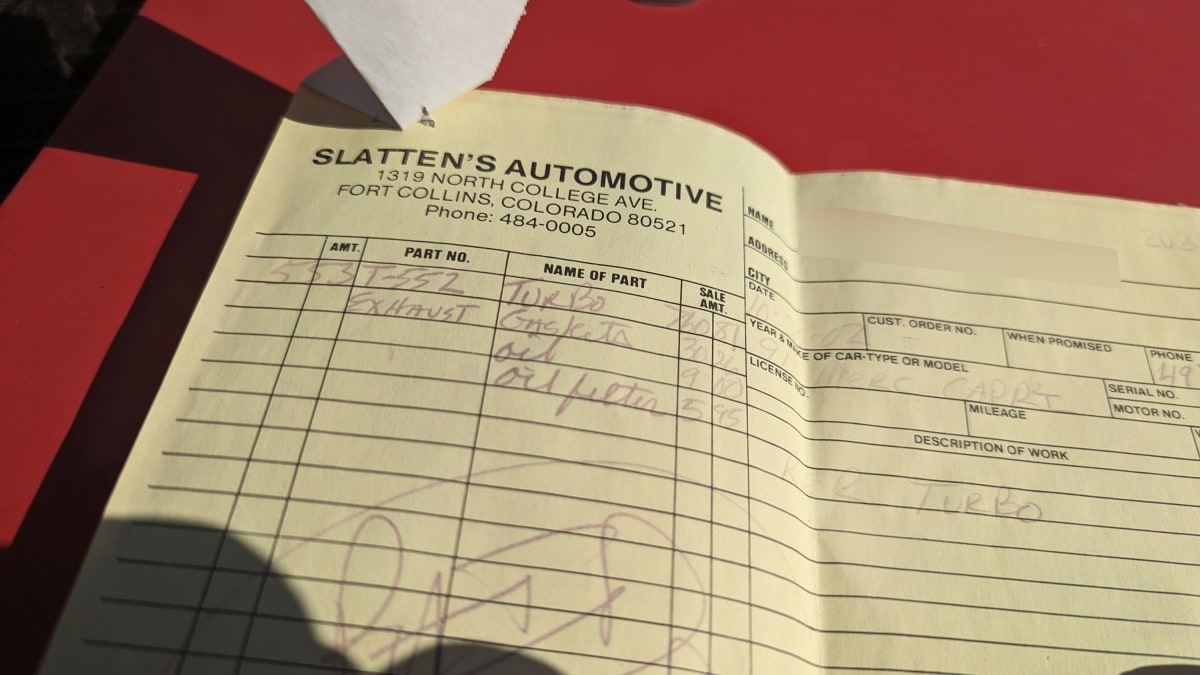
This one had a turbocharger replacement in 2002, according to receipts I found in the glovebox, and the lack of any paperwork dated after that makes it appear that it got parked for good not much later.
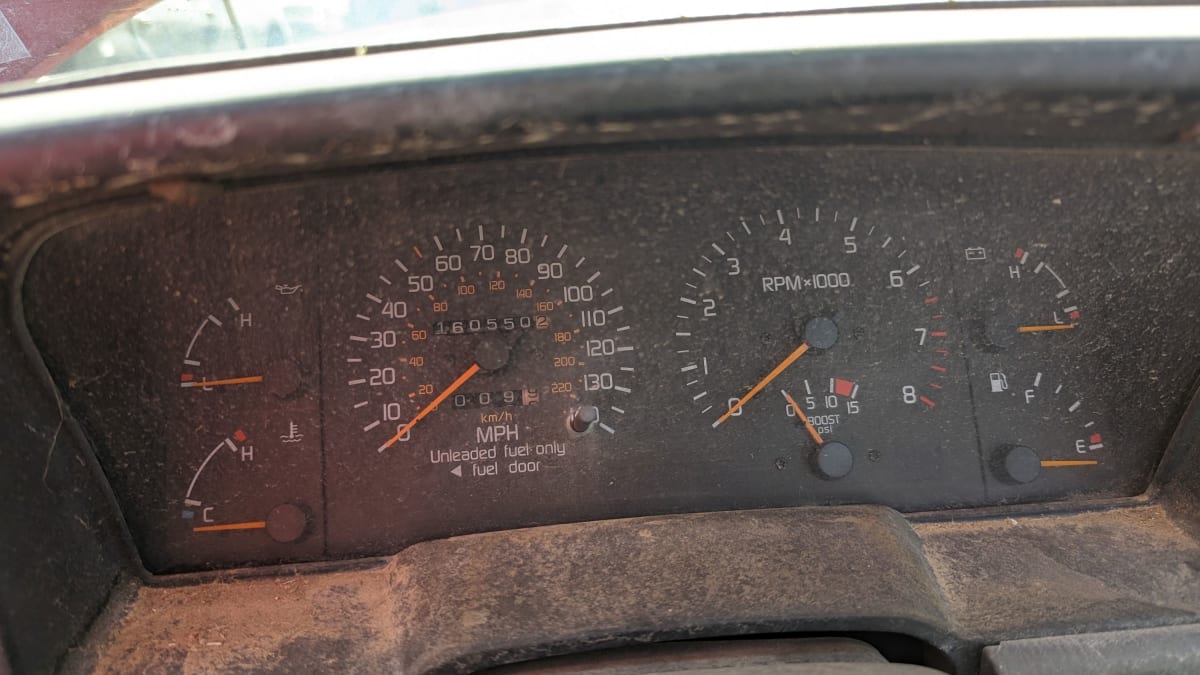
160,550 miles in about a decade shows that this car had a long daily commute and served its owner or owners well.
Think of it… as a steel bikini.
It’s very cheap.
The Australian-market ads for this car got some impressive reverb effect on the narrator’s voice.
The entire 1991 Australo-Ford lineup looked like fun, though they’d have done better using the Van Halen cover of the Kinks song.
